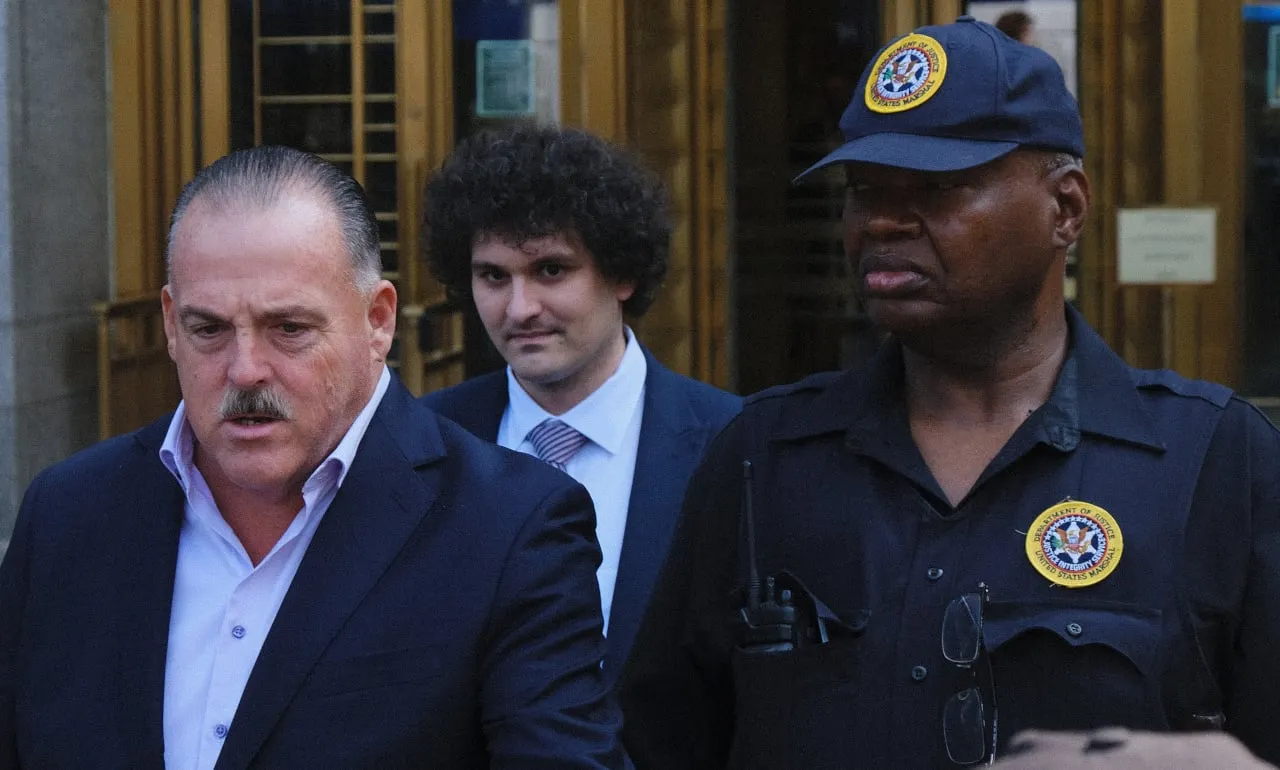Federal prosecutors requested FTX founder and former CEO Sam Bankman-Fried be detained on Wednesday, shifting their request at the last minute.
Previously, federal prosecutors wanted Bankman-Fried’s bail restrictions tightened, barring him from making extrajudicial statements. But FBI agents were present Wednesday in Manhattan federal court, prepared to take Bankman-Fried into custody.
“There are no set of conditions short of detention that could satisfy public safety,” federal prosecutor Danielle Sassoon said, adding Bankman-Fried’s latest actions “crossed the line.”
Wednesday’s hearing follows the disgraced crypto wunderkinds’ interactions with a reporter at the New York Times. An article published last week by the paper contained snippets of personal writings from Caroline Ellison, the former CEO of FTX’s sister company Alameda Research.
Bankman-Fried and Ellison dated at one point, and the article detailed how their breakup weighed on Ellison’s attitudes toward her job. The in-depth look at Ellison’s perspective from the helm of Alameda also said she didn’t feel “well suited” for the job.
Echoing previous accusations, Sassoon said Bankman-Fried tried to discredit a witness by leaking documents to the New York Times. She alleged it amounted to witness tampering. Ellison pleaded guilty to crimes in connection to the exchange’s collapse last year and is set to testify against Bankmnan-Fried, along with other members of his inner circle.
There were audible gasps in the courtroom when federal prosecutors told U.S. District Judge Lewis Kaplan they were seeking the detention of Bankman-Fried, who could soon have his bail revoked. Federal prosecutors have until Friday to submit a letter outlining their application for Bankman-Fried’s detention.
Sassoon described Bankman-Fried’s behavior as an “escalation” of previous communications he’s had with potential witnesses, including messages to FTX US’s current general counsel. Bankman-Fried had expressed his desire to “vet things with each other.”
Bankman-Fried’s attorney Mark Cohen described today's shift as somewhat blindsiding.
“We learned one minute before the court hearing about the change in direction,” he said, adding it was “not a proper process.”
Cohen admitted “it’s not the best strategy” for his client to communicate with the press, but he said Bankman-Fried’s contact with the New York Times was not a violation of his bail agreement. Additionally, Cohen claimed Bankman-Fried did not hand over Ellison’s personal writing—he simply let the reporter view them.
Sassoon said Bankman-Fried’s counsel declined to provide the documents in question since the article came out. Eventually, Bankman-Fried’s counsel agreed to deliver the documents to federal prosecutors by the end of the day, which Cohen said are one to two pages in length.
Bankman-Fried faces a litany of charges for his alleged role in FTX and Alameda’s collapse that include wire fraud, money laundering, and campaign finance law violations. Prosecutors claim he misappropriated customer funds to the tune of billions of dollars.
On Monday, Bankman-Fried’s counsel insisted their client had done nothing wrong in talking to the press. Lawyers at Cohen & Gressler LLP said he was within his rights to respond to an inquiry in a filing and “none of what occurred was improper.”
In January, federal prosecutors raised concerns that Bankman-Fried may have engaged in witness tampering by sending encrypted messages. Judge Kaplan subsequently barred Bankman-Fried from using the tech to communicate with FTX employees.
FTX imploded last year after a steep drop in the exchange’s native token FTT caused a flurry of customer withdrawals. FTX’s inability to satisfy customer withdrawals forced it to admit the firm did not hold one-to-one reserves of customer assets.
Following his arrest in the Bahamas, Bankman-Fried was extradited to the U.S. and currently resides under house arrest at his parent's home in Palo Alto, California. His criminal trial is set to take place in October.
Editor's note: This article was updated after publication to include further details of today's court proceeding.

